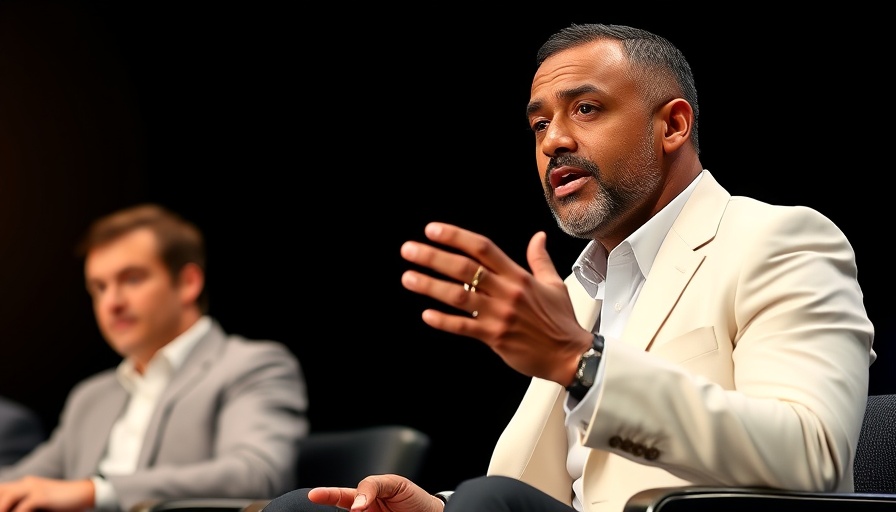
Stephen A. Smith Stands Firm Against Criticism
Recently, radio host Stephen A. Smith has come under fire for his remarks regarding Texas Democratic Rep. Jasmine Crockett. He criticized her for prioritizing performative political statements over tangible contributions to her constituents. In a bold declaration on his podcast, "Straight Shooter with Stephen A. Smith," he labeled the backlash he received as "immature" and "shameful," directing his ire towards what he described as misplaced accusations of disrespect toward Crockett.
A Legend in the Making: Smith vs. The Critics
Smith's comments stemmed from his belief that Crockett's vocal opposition to former President Donald Trump—while provocative—distracted from her responsibilities as a legislator. He challenged the notion of "disrespect," arguing that calling a sitting president derogatory names does little to serve the people back home in Texas. He remarked, "Aren't you there to find a way to get stuff done, as opposed to just being an impediment to what Trump wants?"
Voices from the Community
Critics have emerged from various corners, including prominent Black commentators who expressed disappointment in Smith's stance and labeled it a "betrayal" of Crockett. Notable figures like podcaster Willie D and activist Tamika Mallory joined the conversation, suggesting that Smith's comments added fuel to divisive political fires. In response, Smith emphasized that his intention was never to undermine but rather to encourage productive dialogue and actions that benefit constituents.
Counterpoints in Political Discourse
The situation opens up a broader discussion about the complexities of political expression and the balance between passionate opposition and constructive governance. Smith advocates for a politics that prioritizes effective results over performative rhetoric, unveiling a tension within the Democratic Party where some members feel obliged to engage in theatrical confrontations with their opposition.
The Role of Media Figures in Politics
Smith's role as a media figure complicates the narrative surrounding his comments. As a man of influence, his opinions carry weight. This begs the question: How should public figures navigate discourse without branding their commentary as aggressive or disrespectful? Smith seems to believe that being straightforward should take precedence over toeing the line of political correctness, creating a call for transparency and authenticity.
Implications for Future Political Conversations
Ultimately, Smith's candidness can be viewed as a clarion call for more rational dialogues in politics. As the country continues to grapple with polarized opinions, the need for debates that prioritize constructive criticism over cheap shots becomes ever more critical. How will this balancing act play out in the context of an impending presidential election cycle, where the stakes are higher than ever?
Engaging with Today's Issues
Amid this charged atmosphere, it is essential to note how these conversations affect broader current events and legislative action in America. As voters and constituents, understanding the nuances of political discourse can foster a more informed public capable of advocating for genuine change rather than sensationalism.
 Add Element
Add Element  Add Row
Add Row 



Write A Comment